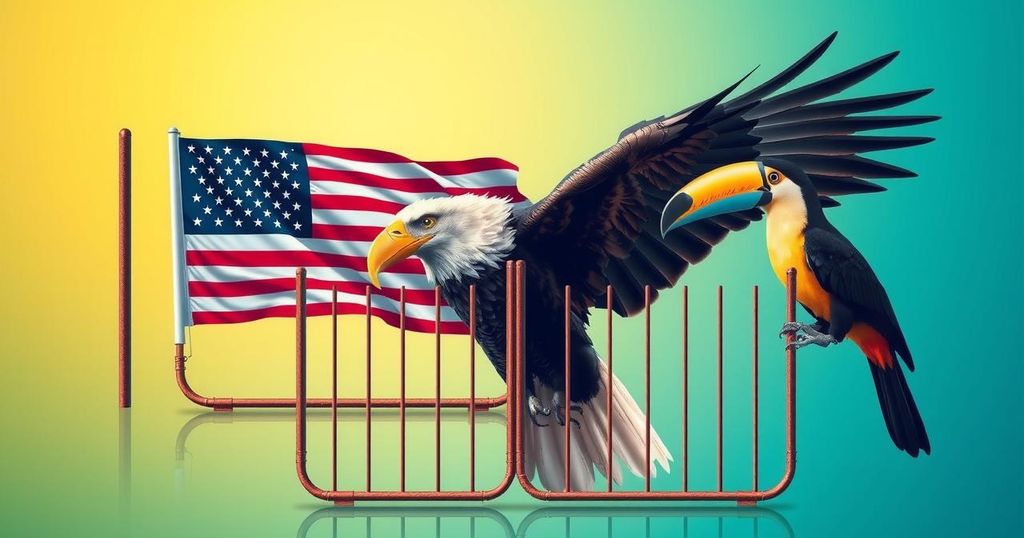Trump Imposes 50% Tariff on Brazil Amid Tensions with Lula

- Trump imposes a 50% tariff on Brazilian imports effective August 1.
- The move is a response to tensions with President Lula da Silva.
- Trump criticizes the trial of Jair Bolsonaro as a witch hunt.
- He claims Brazil has attacked free elections and speech rights.
- The tariffs will not apply to goods manufactured in the U.S.
- Trump warns of raising tariffs if Brazil retaliates on American imports.
Trump Imposes 50% Tariff on Brazilian Imports
In a striking move, President Donald Trump announced a hefty 50% tariff on imports from Brazil, set to take effect on August 1. This decision stems from escalating tensions with Brazilian President Luiz Inacio Lula da Silva, who recently referred to Trump as an unwelcome “emperor.” Trump’s dissatisfaction also extends to the trial of former Brazilian President Jair Bolsonaro, which he vehemently labels a “witch hunt” that should never happen.
Details of Trump’s Tariff Justification
In a lengthy letter addressed to President Lula, Trump expressed his prior respect for Bolsonaro, describing him as a “Highly Respected Leader” globally. He went on to criticize Brazil’s treatment of Bolsonaro, calling it an “international disgrace.” Trump’s letter also ventured into allegations of Brazil’s violations against free elections and curtailing free speech rights of Americans, which he claims have led to these drastic trade measures. He stated, “Due in part to Brazil’s insidious attacks on Free Elections, starting on August 1, 2025, we will charge Brazil a Tariff of 50% on Brazilian products.”
Open Door for Future Trade Negotiations
Additionally, Trump contended that the tariffs on Brazilian goods remain insufficient for achieving a fair trade balance. He elaborated that years of negotiations revealed a rather unreciprocal trading relationship. Notably, the U.S. is willing to exempt Brazilian companies from tariffs if they establish manufacturing within the United States, promising expedited approvals for such operations. Trump’s letter underscored his willingness to raise tariffs further should Brazil impose any on American imports, but he indicated a possibility for lowering them if Brazil modifies its approach to trade. He directed U.S. Trade Representative Jamieson Greer to initiate an investigation into Brazil’s digital trade practices.
President Trump’s recent tariff on Brazilian imports highlights a significant shift in U.S.-Brazil relations, spurred by recent political disagreements. The proposed tariffs are seen as a response to alleged unfair trade practices by Brazil and a defense against censorship of American platforms. Moving forward, both nations may navigate through negotiations aimed at easing tensions and establishing a more reciprocal trade framework.








